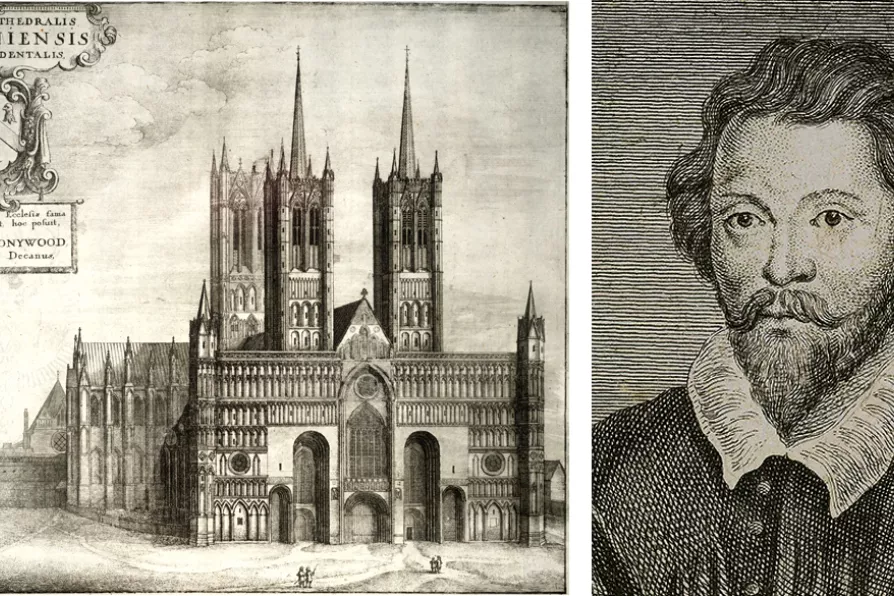Climate activist and writer JANE ROGERS introduces her new collection, Fire-ready, and examines the connection between life and fiction

 (L to R) Lincoln Cathedral in the 17th centiry and William Byrd
[(L to R) unknown public domain Gerard van der Guch/CC]
(L to R) Lincoln Cathedral in the 17th centiry and William Byrd
[(L to R) unknown public domain Gerard van der Guch/CC]
2023 marks the 400th anniversary of the death of William Byrd, as well as that of Thomas Weelkes. Both English composers were highly influential, and to this day choirs and ensembles the world over perform works by both composers.
Discussions of William Byrd often focus upon the ingenuity of his music, and almost entirely separate his music from the world around him. However, Byrd was born towards the end of Henry VIII’s life, meaning sectarianism was the prominent societal ill, which Byrd himself had somehow to navigate.
Although we don’t have a definitive year of birth, it is assumed Byrd was born in either 1539 or 1540. He came to prominence in Lincoln as the organist and master of the choristers at Lincoln Cathedral in 1563, but he became an influential figure when he became a gentleman of the Chapel Royal in 1572.

‘Honest’ Tom Wharton’s 1682 drunken rampage through St Mary’s church haunted his political career, but his satirical song Lillibullero helped topple Catholic James II during the Glorious Revolution, writes MAT COWARD

GUILLERMO THOMAS is persuaded by a scathing critique of the Church of England and its embeddedness in imperialism

This is a concert of ambition and courage by organist and improviser Wayne Marshall, says SIMON DUFF











